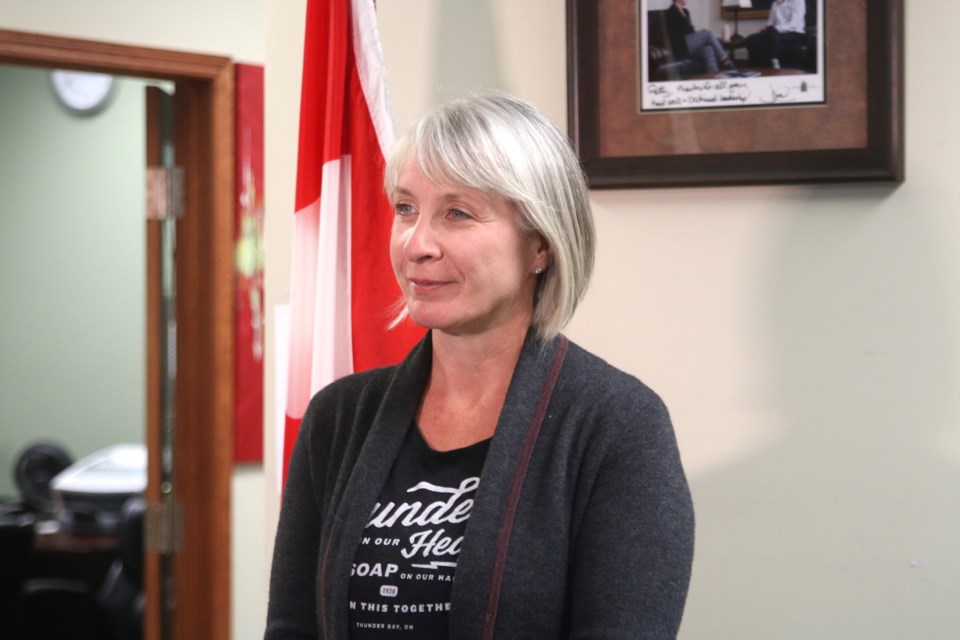THUNDER BAY - Minister of Health Patty Hajdu is trying to reassure Canadians that more COVID-19 vaccines are coming and delays in deliveries will mean better capacity for the future.
“As frustrating as this is for everyone, this is a bump in the road and the vaccines are coming,” she said.
There have been delays in shipments of both the Moderna and Pfizer COVID-19 vaccines, leaving provinces and territories struggling to roll out vaccination plans.
“The demand for vaccines worldwide is enormous,” Hajdu said. “We do have a commitment from Pfizer and Moderna to deliver their committed doses by the end of quarter one and nothing has indicated to us that they are not going to be able to hit those targets.”
Hajdu said the federal government will be transparent with Canadians and share both the good news and the bad news as it relates to the COVID-19 pandemic.
“That has been my approach as health minister throughout this pandemic,” she said. “There are times when things go well and times when things don’t go so well.”
Pfizer announced earlier this year that it was temporarily pausing the manufacture of its COVID-19 vaccine in Belgium in order to increase manufacturing capacity.
“That is good in the long term,” Hajdu said. “What they are doing is building a capacity to deliver more doses faster.”
Hajdu said the Canadian government has received assurances from its European Union counterparts that the vaccine doses will be exported as agreed.
According to Hajdu, Canada was one of the first countries to have a signed agreement with Pfizer and Moderna.
“We were there with money, with flexibility to be able to be at the table and be ready to receive early doses,” she said. “It’s not an issue of Canada undercutting or trying to find a deal. We want to be responsible with taxpayer’s money. In my mind, it’s not about trying to save money, it’s about trying to save lives. We went in with that purpose.”
Hajdu said waiting several weeks for doses to start to arrive regularly again may seem like a long time but provinces and territories need to be ready for when more doses do arrive.
“In the next couple of months we will be talking about how we get the vaccines in the arms faster because they will be arriving so quickly,” she said. “We want to make sure provinces and territories have really good plans for when they see the volume of vaccines that arrive.”
In the meantime, Hajdu said it’s important that provinces and territories approach lifting lockdowns cautiously, as surges can quickly reoccur and overwhelm the health care system.
“Based on our national experiment after the first wave of opening up, what provinces and territories do next is critically important to the health of every single Canadian,” Hajdu said.
“What we have seen if your restrictions are lifted too quickly, without the capacity to manage outbreaks, you get into trouble. Sometimes it doesn’t feel like it for a few weeks but the numbers start to climb.”
This is especially true with new variants of COVID-19 arising in countries with wide community spread.
Hajdu said keeping the spread low in Canada will prevent the virus from mutating and learning how to be more effective in the country.
And community spread is not limited to close contact transmission or travel. Institutional outbreaks, like those currently in the Thunder Bay Correctional Centre and the Thunder Bay District Jail, are a health concern for everyone in the community.
“You are only as well as the sickest amongst us,” Hajdu said. “If you have COVID-19 circulating through the homeless shelters or other vulnerable populations like that, it is only inevitable that people who work in those facilities get sick as well and that is when you see community spread. We have to take care of everyone in order to protect everyone in the community.”